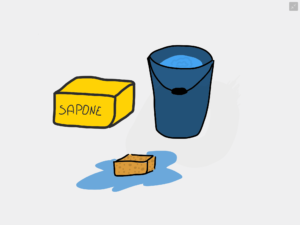
Le giornate si allungano e questo bel sole ci preannuncia l’ arrivo della primavera ….. per sentirci più energici è consigliabile allora alleggerire il nostro fegato con piante che ne favoriscano la depurazione.
Il fegato è la ghiandola più grande del corpo umano, si può definire il LABORATORIO CHIMICO dell’organismo in quanto in esso si svolgono molti dei processi fondamentali del metabolismo di glucidi, lipidi e protidi.
Inoltre il fegato provvede a trasformare e a rendere innocui e facilmente eliminabili molti composti in gran parte assorbiti dall’ intestino, che potrebbero esplicare un’azione tossica sui tessuti più delicati qualora passassero immodificati nel circolo sanguigno sistemico.
Anche numerose sostanze di origine ormonale (esempio ormoni steroidei) vengono inattivate nel fegato, e poi eliminate con le urine .
Altra funzione delle cellule epatiche è la secrezione della bile, fondamentale per la digestione dei grassi.
Da quanto detto si può comprendere l’importanza di avere un fegato sempre ben funzionante .
Una pianta già utilizzata nell’antichità (veniva coltivata negli “horti” dei monasteri medioevali) appartenente alla famiglia delle compositae, e diffusa dal mare alle regioni sub montane e nelle isole, è il cardo mariano.
Negli anni 60 fu isolato il principio attivo che si trova nei suoi frutti, la silimarina, e attraverso la sperimentazione in vivo e in vitro si è confermata l’attività epatoprotettiva e antiepatotossica.
In commercio lo si può trovare sotto forma di capsule da assumere un paio di volte al dì prima dei pasti.
Altre piante ad azione depurativa sono:
–Cynara scoymus ovvero il carciofo, appartenente alla famiglia delle composite ,contiene cinarina e cianaropicrina principi attivi amari con attività depurativa e ipocolesterolemizzante, in commercio si può trovare sotto forma di gocce di tintura madre o capsule.
–Taraxacum dens leonis, tarassaco la cui tintura madre si prepara dalla pianta intera fiorita, contiene principi attivi amari, inulina, flavonoidi e svolge una attività depurativa ed eupeptica.
–Rosmarinus officinalis, il rosmarino in macerato glicerico realizza un buon drenaggio epatico agendo sulle vie biliari con azione stimolante della bile.
Queste le piante più utilizzante in erboristeria, si ricorda comunque sempre di evitare il “fai da te” !!
Buona giornata e a presto!
Here are Loredana’s advises to be ready for the spring
The days get longer and this beautiful sun means the arrival of spring ….. to feel more energetic we’d better lighten our liver with plants that help its purification.
The liver is the largest gland in the human body, it can be defined as the CHEMICAL LABORATORY of the organism because is where many of the fundamental processes of the metabolism of carbohydrates, lipids and protides are carried out.
In addition, the liver transforms and makes harmless and easily eliminable many compounds largely absorbed by the intestine, which could exert a toxic action on the most delicate tissues if they pass unchanged into the systemic bloodstream.
Also many substances of hormonal origin (eg steroid hormones) are inactivated in the liver, and then eliminated with urine.
Another function of liver cells is the secretion of bile, essential for the digestion of fats.
It’s possible to understand the importance of having a well-functioning liver.
Milk Thistle is a plant already used in the past (it was cultivated in the “horti” of medieval monasteries) belonging to the family of compositae, and spread from the sea to sub-mountainous regions and islands.
In the 1960s, the active ingredient found in its fruits, silymarin, was isolated, and through in vivo and in vitro testing, its hepatoprotective and antihepatotoxic activity was confirmed.
In the market it can be found in the form of capsules to be taken a couple of times a day before meals.
Other plants with a depurative action are:
–Cynara scoymus or artichoke, belonging to the family of the composite, contains cinarina and cyanaropicrina bitter active ingredients with purifying and hypocholesterolemic activity, can be found in the form of drops of mother tincture or capsules.
–Taraxacum dens leonis, dandelion whose mother tincture is prepared from the whole flowering plant, contains bitter active ingredients, inulin, flavonoids and performs a purifying and eupeptic activity.
–Rosmarinus officinalis, rosemary in glyceric macerate, performs a good hepatic drainage acting on the bile ducts with stimulating action of the bile.
These are the plants most used in herbal medicine, but always remember to avoid the “do it yourself”!
Have a good day and see you soon!







